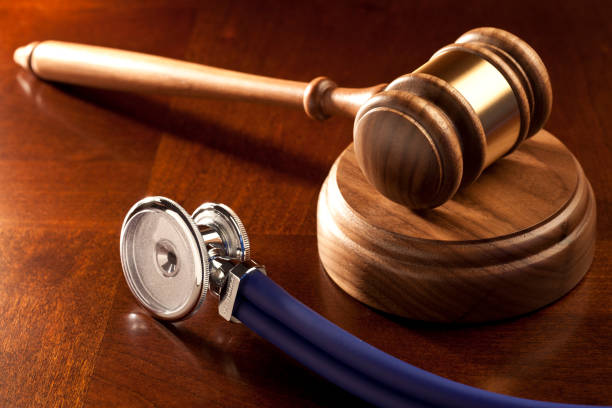Personal Injury Cases: What You Should Know

Personal injury can have some serious physical, financial and even legal consequences. Led to this situation alone can be difficult. Recovering from personal injuries may include extensive physical recovery, settling medical expenses, making insurance claims and, in some cases, hiring an attorney to fight a legal battle.
In this case, it would be helpful to seek the services of an injury lawyer in Anchorage – they have in-depth knowledge of the state’s regulations. They will assist you in the claims and negotiations process. A skilled lawyer’s knowledge can relieve you from mental stress while they deal with all the other legal matters.
Types of Personal Injury
Accidents can cause a range of injuries, and knowing what to expect can help you act quickly:
1. Whiplash and Neck Injuries
- Symptoms: Neck pain, stiffness, headaches.
- Cause: Sudden back-and-forth neck motion in car accidents.
- Treatment: Rest, physical therapy, pain management.
The whiplash injury is usually tricky because the pain is only felt weeks or even months after the injury has occurred. Therefore, it is crucial to let a professional examine you right after the accident for any prevailing signs and ensure a follow-up.
2. Head and Brain Injuries
- Symptoms: Dizziness, confusion, headaches.
- Cause: Head impact, causing concussions or TBIs.
- Treatment: Medical evaluation, rest.
Injuries to the head, particularly TBIs, come with symptoms that can be latent and can get worse, especially if the injury is not treated in good time. These may also include long-term facilities to monitor treatments such as rehabilitation with frequent health check-ups.
3. Back and Spinal Cord Injuries
- Symptoms: Pain, tingling, weakness.
- Cause: Trauma to the spine.
- Treatment: Emergency care and physical therapy.
Back and spinal injuries have chronic pain or inactive conditions. If these injuries are suspected, it’s vital to seek prompt care and avoid activities that could worsen the injury unless seen by a qualified healthcare provider.
4. Broken Bones and Fractures
- Symptoms: Swelling, intense pain.
- Cause: High-impact force.
- Treatment: Casts, possible surgery.
Broken bones can take weeks or even months to heal. Because these injuries typically require long period to recover, it is important to document all reports carefully.
5. Internal Injuries
- Symptoms: Abdominal pain, dizziness, and shock.
- Cause: Internal trauma.
- Treatment: Urgent care, possible surgery.
Internal injuries are life-threatening if left untreated. It’s crucial to undergo a full medical evaluation following any accident to detect and address hidden injuries promptly.
Besides required treatment for injuries, having an injury lawyer Anchorage can ensure a fair evaluation, especially if insurance companies try to offer a lower settlement than what you truly deserve.
Moving Forward: Essential Steps to Take After an Accident
Knowing what to do after an accident can make a big difference in your recovery and in any legal action you might pursue. This is what you should do:
1. Seek Immediate Medical Attention
After an accident happens, it is essential to inform the police. Police will prepare a report regarding your injuries and losses. This may be especially crucial if you seek to make a claim.
2. Report the Accident
After an accident happens, it is essential to inform the police. Police will prepare a report regarding your injuries and losses. This may be especially crucial if you seek to make a claim. .
3. Capture Images of the Scenee and Injuries
Pictures of the accident scene, injuries sustained, and damaged property should be taken. Assets are used to prove what has happened and help in case of disagreement.
4. Gather Witness Information
If possible, try to collect witness details from any witness present during the accident. Their intervention might further help your claim, especially when conflicting events exist.
5. File an Insurance Claim
Inform your insurer about the accident, particularly where a car, house or health insurance has been taken up. It is important to provide evidence to these people, as it will assist you in claiming back the expenses. This can help you secure the coverage you need for medical treatment and repairs.
6. Consult a Personal Injury Lawyer
If your injuries are severe or if liability is disputed, it is wise to contact a personal injury attorney. The lawyer will take over the negotiations with the insurance companies, advise you on the best options to take and act on your behalf if you decide to sue.
When to Contact a Lawyer
While minor injuries may not require legal assistance, serious accidents that significantly impact your life are a different story. You may want to call on an attorney in case of the following:
- When you’ve suffered serious injuries resulting in high costs and life disruptions
- When insurance companies offer lower settlements than needed to cover the true costs of your injury.
- When it’s unclear who is responsible for the injury and accident.
- When your injury leads to ongoing medical treatment, you are physically incapacitated for some time or may not be able to work in the same capacity as before.
An injury lawyer in Anchorage, who is conversant with personal injury law, will help you navigate the legal process and fight for your fair share of compensation.
Conclusion
Accidents can interrupt life in unforeseen ways. An excellent attorney who ensures you get the medical care you need, along with your rightful insurance claim, among other things, will give you time to focus on your physical and mental recovery. Opting for the most appropriate assistance means you can confidently approach the future, knowing that your health, rights, and other important aspects will be taken care of.





